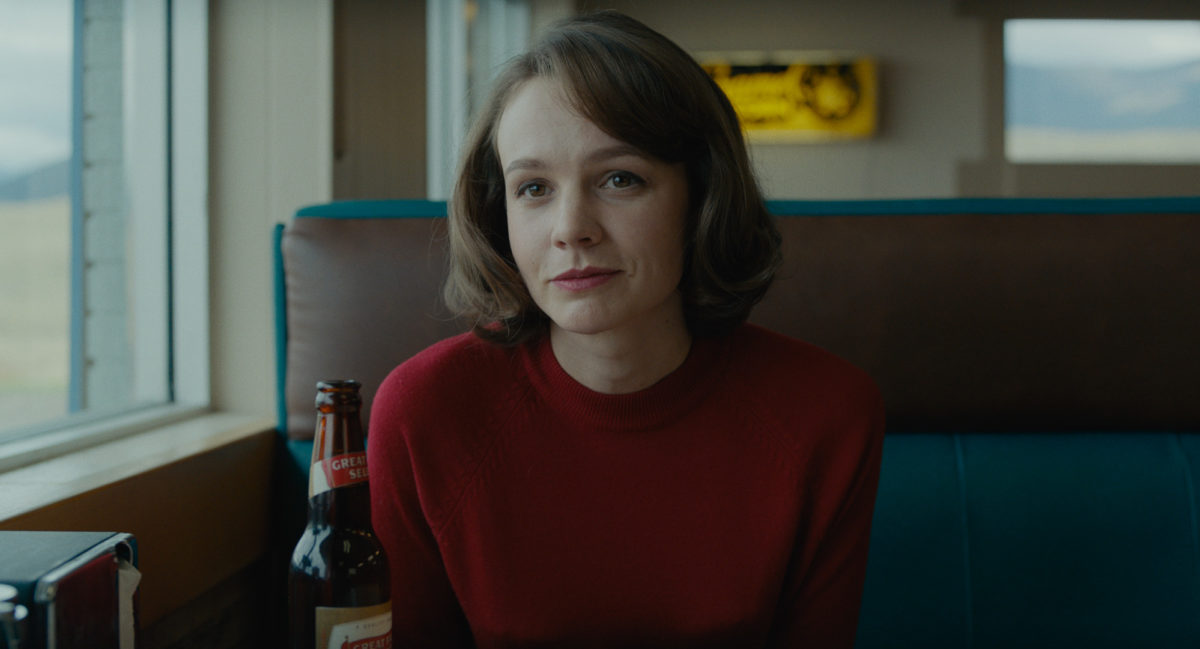Brisk honesty in long takes is the main character in actor Paul Dano’s debut feature Wildlife (2018). The anthropomorphised camera is the unnamed sibling in this 1960s American family portrait, based on a novel of the same name by Richard Ford, telling the coming-of-age story of Jerry (Jake Gyllenhaal), Jean (Carey Mulligan), and their son Joe (Ed Oxenbould). Suburban Montana and its wildfires are the backdrop of the family break-up. Its loose threads — the mother, father, and child — become sharper and well-defined characters in the process. Framed between sunrises and sunsets, Wildlife gradually sets up an emotionally saturated palette. With slow camera movements and long tracking takes, Diego García’s cinematography enhances the psychological depth of interiors such as Jean’s bathroom, a place both inviting and prohibited for her son. The camera is observational up to a certain point of puncture, letting the sequences unfold naturally, spatially and temporally guided by the characters, and when the cut comes, all that is left is human weakness, exposed and forgivable.
Wildlife’s narrative deals with absence as formative trauma as both Jerry and Jean seem to neglect their parental duty. The film focuses on dysfunctional family issues through the eyes of a fourteen-year-old boy, who seems to be the addressee to all of the grown-ups’ doubtful questions. We see a forlorn father asking his son “What’s a man entitled to do?” after being unjustly fired from his job, or in another case a reckless mother exclaiming: “If you have a better plan for me, tell me!” The first part of the film removes the masculine figure out of Joe’s life, as his father showcases stubbornness, egocentrism, and decides the best way to put an end to an emasculated unemployment, is to volunteer as a fire-fighter. His choice proves to be the catalyst for a family dissolution, as Gyllenhaal’s character quietly succumbs to his insecurities, looking for answer in the twilight sky in a prophetic shot-reverse-shot sequence before he sets off to potential death. The characters of Wildlife ask all the questions, but still are not fit to accept the bitter answers life can give. Dano’s inspection of masculinity is externalised in the character of Jerry, who’s flaws and outbursts compose a honest depiction, while avoiding demonization.
Similarly, the second part of the film shows the life of Joe with his mother, who transforms from a housewife to a determined career woman, even though she is not spared from making mistakes and poor judgement calls along the way. Carey Mulligan’s vigorous, borderline imperious Jean, stages the aesthetics of the frame with lavish dresses, confident catwalk, flirting with space as she would with a desirable man, and the camera rarely breaks off her controlled space. Her dominating presence is a result of a young boy’s admiration for his mother, but the film parallels her spur of femininity as a (now single) woman, with that of absent masculinity. Without placing the blame on either mother or father, the synthesis of gentle understanding and forgiveness is vested in their son. By avoiding gender bias or pointing fingers, Wildlife showcases the coming-of-age of the whole family, humbly admitting that everyone is flawed.
